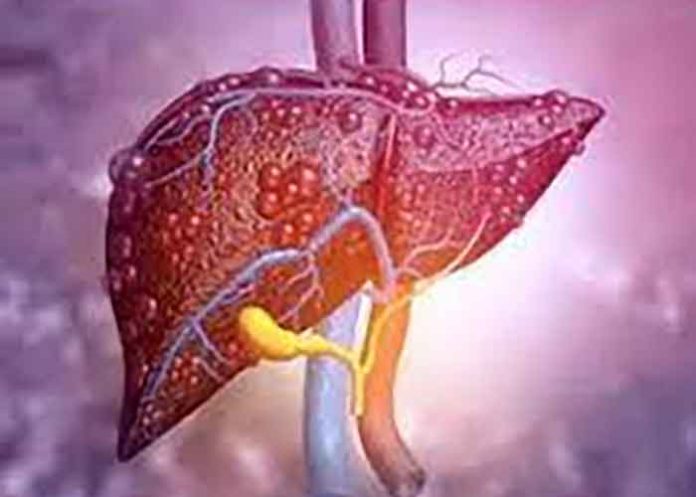New York, October 19, 2024 (Yes Punjab News)
A recent study has revealed that diabetes and obesity significantly raise the risk of liver cancer relapse. The research, led by Osaka Metropolitan University, focused on hepatocellular carcinoma (HCC)—the most common type of liver cancer, which is closely linked to hepatitis infections and known for its high recurrence rate even after surgical removal. HCC is the third leading cause of cancer-related deaths globally and the sixth most common cancer worldwide.
The Link Between Obesity, Diabetes, and Liver Cancer
Obesity and diabetes are known to be major contributors to metabolic syndrome, a condition that can lead to steatotic liver diseases, which may progress to liver cirrhosis and eventually HCC. While the link between these conditions and the development of liver diseases is well established, the study explored how obesity and diabetes impact the recurrence of liver cancer and post-surgery survival rates.
According to Dr. Hiroji Shinkawa from Osaka Metropolitan University’s Graduate School of Medicine, the research demonstrated that controlling obesity and diabetes is crucial for reducing the risk of liver cancer recurrence. “Because the risk of late recurrence is higher in hepatocellular carcinoma with comorbid obesity and diabetes, controlling obesity and diabetes is an important treatment strategy for liver cancer,” Shinkawa said.
Key Findings of the Study
Published in the journal Liver Cancer, the study analyzed 1,644 patients with hepatocellular carcinoma who underwent liver resection (surgical removal of part of the liver). The research revealed a strong correlation between obesity, diabetes, and cancer relapse:
– Obesity increased the risk of liver cancer recurrence 1.5 times two years after surgery.
– Diabetes raised the risk of cancer recurrence by 1.3 times within the same period.
– Five years after surgery, the risk of recurrence was 3.8 times higher for patients with obesity and 2 times higher for those with diabetes.
Implications for Early Detection and Treatment
These findings have important implications for cancer treatment strategies. By identifying the heightened risk of recurrence in patients with obesity and diabetes, healthcare providers can focus on early detection of cancer relapse and design more tailored treatment plans. Dr. Shinkawa emphasized that controlling these metabolic conditions could help improve patient outcomes and reduce the overall burden of liver cancer.
The Global Rise of Obesity and Diabetes
Obesity and type 2 diabetes are often linked, with obesity being a major risk factor for diabetes. Recent studies have shown alarming trends in the global rise of both conditions. Research suggests that the number of adults with obesity will increase sixfold in the next 40 years, and the global population with diabetes is projected to reach 642 million by 2040.
This surge in obesity and diabetes highlights the growing importance of addressing these conditions not only for their direct health risks but also for their potential role in cancer recurrence.
The Need for Targeted Treatment and Prevention
The study reinforces the need for targeted strategies to manage obesity and diabetes in patients with liver cancer. By controlling these conditions, patients can significantly lower their risk of cancer recurrence and improve their long-term survival rates. As global rates of obesity and diabetes continue to rise, integrating metabolic health management into cancer treatment plans could be a key step in reducing the burden of hepatocellular carcinoma.
Key Takeaways
– Obesity increases the risk of liver cancer recurrence 1.5 times two years after surgery, and 3.8 times after five years.
– Diabetes raises the risk of recurrence by 1.3 times after two years and 2 times after five years.
– Managing obesity and diabetes is crucial for improving postoperative outcomes in liver cancer patients.
– With global obesity and diabetes rates expected to rise, early intervention and tailored treatment strategies are more important than ever.
FAQs
1. How do obesity and diabetes affect liver cancer recurrence?
The study found that obesity and diabetes significantly increase the risk of liver cancer relapse, raising the likelihood of recurrence by up to 3.8 times after surgery.
2. What is hepatocellular carcinoma (HCC)?
Hepatocellular carcinoma is the most common type of liver cancer, often associated with hepatitis infections, and is known for its high recurrence rate.
3. Why is controlling obesity and diabetes important for liver cancer patients?
Controlling these conditions can help reduce the risk of cancer recurrence, improving long-term survival rates for liver cancer patients.
4. How widespread are obesity and diabetes globally?
Obesity and diabetes are on the rise worldwide, with the number of adults with obesity projected to increase sixfold in the next 40 years and diabetes cases expected to reach 642 million by 2040.
5. What are the implications of this study for liver cancer treatment?
The findings suggest that early detection and focused treatment plans targeting metabolic conditions like obesity and diabetes can significantly improve outcomes for liver cancer patients.

































































































